Lab in the News
Will Omicron Leave Most of Us Immune?
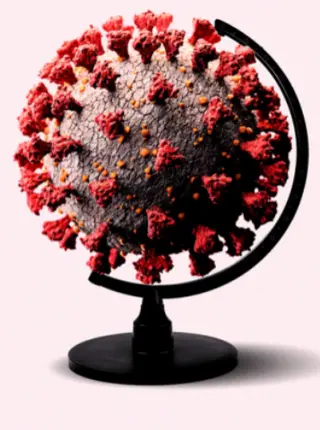
E. John Wherry, PhD, chair of Systems Pharmacology and Translational Therapeutics and director of the Penn Institute for Immunology, spoke with The Atlantic about collective immunity, which is key to ending a pandemic. But its building blocks start with each individual. Allowing for shades of gray, a person’s current immune status hinges on “the number of exposures [to the spike protein], and time since last exposure,” Wherry said.
What Happens After Omicron? Four Key Questions About Where the Pandemic Goes Next
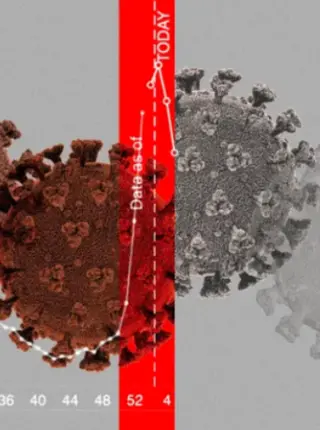
The omicron variant’s worldwide surge has upended early hopes for returns to normalcy and points to a more uncertain future for the pandemic, some experts say. “We are going to have a tremendous number of deaths among the unvaccinated,” said E. John Wherry, PhD, chair of Systems Pharmacology and Translational Therapeutics and director of the Penn Institute for Immunology. “And we’re going to have — even if we manage to eke our way through this — the scar tissue in the health system, which is going to last for a long time and is not going to be something that recovers when infection rates go down.”
How Should We Be Using At-home Rapid Tests for Omicron?
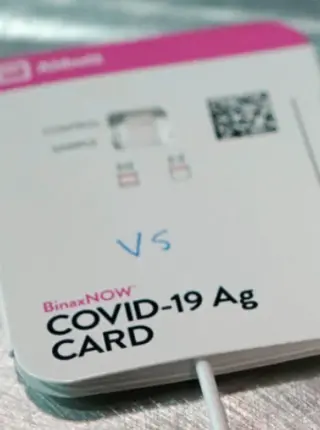
E. John Wherry, PhD, chair of Systems Pharmacology and Translational Therapeutics and director of the Penn Institute for Immunology, spoke with WHYY about rapid antigen tests and how they can used as a means of reducing omicron’s spread. “None of our measures of protecting ourselves or prevention are perfect,” said Wherry. “Vaccines aren’t perfect. Masks aren’t perfect. Tests aren’t perfect. But when used in combinations and in layers, we can dramatically reduce risk.”
Expert Discusses Best Time to Use a COVID-19 Home Test Kit
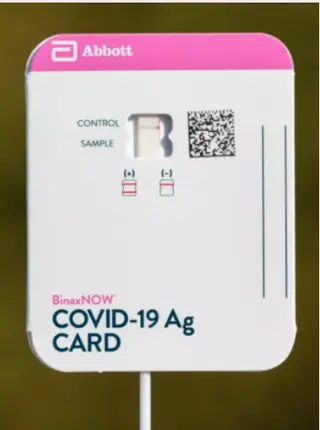
Over the holidays, Americans flocked to stores to try to find at home COVID-19 tests kits. E. John Wherry, PhD, chair of Systems Pharmacology and Translational Therapeutics and director of the Penn Institute for Immunology, recommended that if you’re using the home test as a precaution ahead of a gathering, test 6-12 hours before the event. “That’s going to make sure that when you’re with other people you’re at a low risk for transmitting.”
The ‘Memory’ Of Your Immune System May Offer Some Protection Against Omicron Variant

E. John Wherry, PhD, chair of Systems Pharmacology and Translational Therapeutics and director of the Penn Institute for Immunology, was quoted discussing COVID-19 and the omicron variant. Symptoms reported for omicron have appeared to be mild, and scientists say that there may be evidence that the immune system may have internalized enough knowledge of the virus to offer some added protection against it. “It may be that our antibodies may not work as well, but the immune system has these backup plans that give us some resilience against omicron,” Wherry said.
I’m Vaccinated but Got COVID-19 Anyway. Now What?
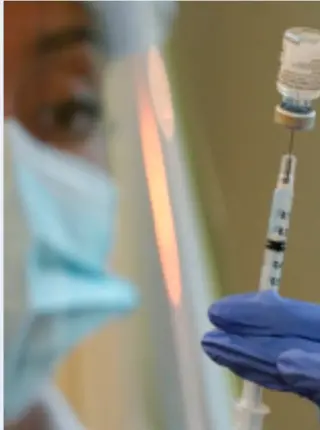
E. John Wherry, PhD, chair of Systems Pharmacology and Translational Therapeutics and director of the Penn Institute for Immunology, spoke with WHYY about what happens if someone who has been vaccinated for COVID-19 gets infected. Being vaccinated still protects people from severe illness. Most healthy, vaccinated adults with breakthrough cases should expect that their symptoms will be relatively mild, similar to the common cold, explained Wherry. Wherry also answered questions about booster shots and the omicron variant.
What’s Known So Far About the Omicron Variant
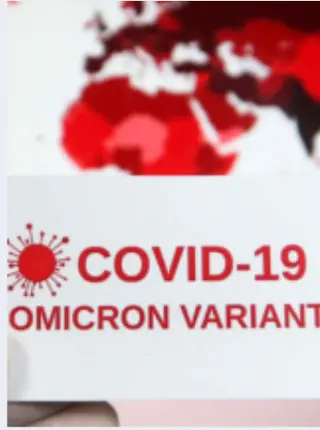
A recent study suggests the omicron coronavirus variant is three times more likely to cause reinfection than delta. E. John Wherry, PhD, chair of Systems Pharmacology and Translational Therapeutics and director of the Penn Institute for Immunology, broke down the recent updates on omicron, the continued delta wave, and the importance of getting the vaccine and a booster shot.
The Omicron Variant and Merck’s Antiviral Pill

E. John Wherry, PhD, chair of Systems Pharmacology and Translational Therapeutics and director of the Penn Institute for Immunology, spoke about the latest COVID-19 news — from Merck’s COVID-19 antiviral pill to boosters and the Omicron variant. “It’s going to be another couple of weeks before we really know how this virus is impacting our immune response,” Wherry said about the new variant. “This is very new. We don’t have a lot of answers yet.”
I’m Fully Vaccinated and I Also Had COVID-19. Do I Need a Booster?
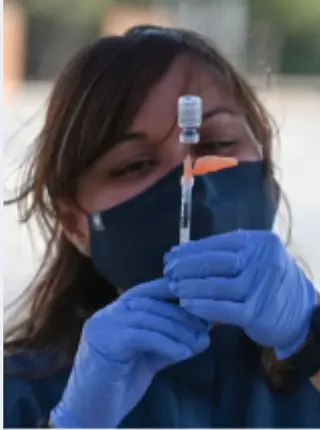
Those who have already had COVID-19 may be hesitant to get a booster shot – but it may not be a bad idea, especially if one is already predisposed to developing severe COVID-19, explained E. John Wherry, PhD, chair of Systems Pharmacology and Translational Therapeutics and director of the Penn Institute for Immunology. All of this is still being studied, but Wherry said there’s no reason to think it would be risky for people with hybrid immunity to get an extra shot. Wherry and Stanley Plotkin, MD, emeritus professor of Pediatrics and Microbiology, were also quoted in Bloomberg on when to time a booster dose.
NPR • Deseret News • Bloomberg
With $10 Million Gift, Penn Medicine Establishes Colton Center for Autoimmunity

Penn Medicine received a $10 million gift to create the Colton Center for Autoimmunity, which aims to advance scientific understanding, diagnosis, and treatment of autoimmunity. The research center is the third of its kind in the U.S. and will collaborate with two existing Colton Centers at New York University and Yale University. “We are proud to be home to this new center and are confident it will drive a rapid and significant impact on patients and families facing autoimmune disease,” said J. Larry Jameson, MD, PhD, dean of the Perelman School of Medicine. E. John Wherry, PhD, chair of Systems Pharmacology and Translational Therapeutics, director of the Penn Institute for Immunology, and new director of the Penn Colton Center, was quoted as well.
Analysis: Scientists Ask Whether Omicron Can Outrun Delta

E. John Wherry, PhD, chair of Systems Pharmacology and Translational Therapeutics and director of the Penn Institute for Immunology, was quoted discussing the Omicron variant and vaccines. Earlier COVID-19 variants, such as Beta, had mutations that rendered the vaccines less effective, but those vaccines still helped prevent severe disease and death. Even if neutralizing antibodies induced by vaccines become less effective, other immune system components known as T cells and B cells will likely compensate. “Vaccination will likely still keep you out of the hospital,” Wherry said.
FDA Panel Recommends Booster Shot For Johnson & Johnson COVID-19 Vaccine
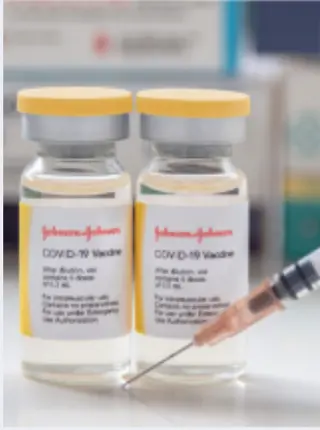
An FDA advisory panel voted unanimously to recommend a booster for the Johnson & Johnson COVID-19 vaccine two months after the initial shot. “Boosting J&J with either Pfizer or Moderna does even better for boosting antibodies,” said E. John Wherry, PhD, chair of Systems Pharmacology and Translational Therapeutics and director of the Penn Institute for Immunology. Wherry noted that there is limited early research on mixing vaccines from different manufacturers for a booster shot, but, “Every combination seems to have an advantage of boosting your antibodies levels,” Wherry said.
Why COVID-19 Boosters Weren’t Tweaked to Better Match Variants
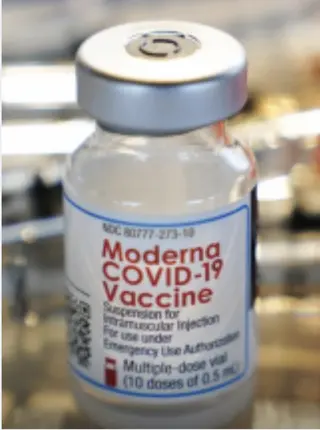
E. John Wherry, PhD, chair of Systems Pharmacology and Translational Therapeutics and director of the Penn Institute for Immunology, spoke with the Associated Press about booster shots and how current vaccines are working against the Delta variant. Wherry also discussed the importance of carefully studying how the body reacts to updated shots and why timing between shots matters. “Your boostability may actually improve with longer intervals between stimulation,” he said. While scientists have learned a lot about the coronavirus, “the story’s not finished yet and we don’t know what the last chapters say.”
Pandemic Words That Almost No One Gets Right
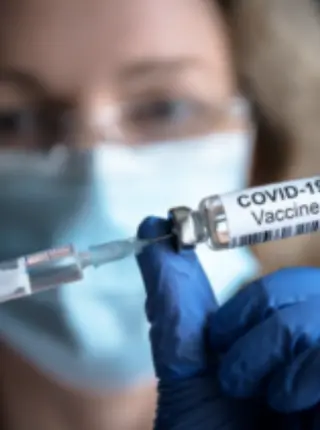
By now a lot of pandemic verbiage has been misconstrued. In an article in The Atlantic, E. John Wherry, PhD, chair of Systems Pharmacology and Translational Therapeutics and director of the Penn Institute for Immunology, and others said they prefer using terms such as “infection-acquired” and “vaccine-acquired immunity” instead of the term “natural immunity.” Wherry has also helped fact-check claims related to COVID-19 for USA Today and FactCheck.org, as well as discussed boosters with CBS News and WHYY, among other outlets.
FDA Clears Moderna and J&J COVID Boosters
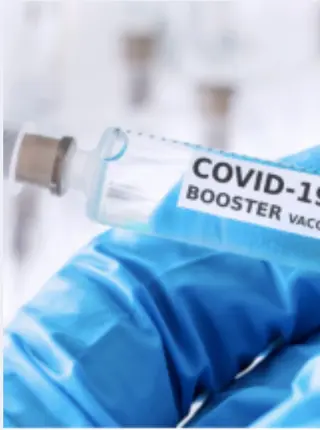
E. John Wherry, PhD, chair of Systems Pharmacology and Translational Therapeutics and director of the Penn Institute for Immunology, joined Good Day Philadelphia to discuss mixing and matching COVID-19 booster shots. He also spoke about plans to get children ages 5-11 vaccinated, along with other coronavirus topics including the incoming colder weather causing people to spend more time indoors. "The best way we protect ourselves and protect our neighbors, families, and friends, is to get vaccinated," Wherry said.
Fox29
Basketball Star Bradley Beal’s Misleading Comments About COVID-19

NBA star Bradley Beal made some misleading comments — shared in viral video clips — about the effectiveness of COVID-19 vaccines. E. John Wherry, PhD, chair of Systems Pharmacology and Translational Therapeutics and director of the Penn Institute for Immunology, was quoted explaining why breakthrough cases can happen and how vaccines help protect people, including individuals who had previously been infected by COVID-19.
What About Boosters for People Who Didn’t Get a Pfizer Vaccine?
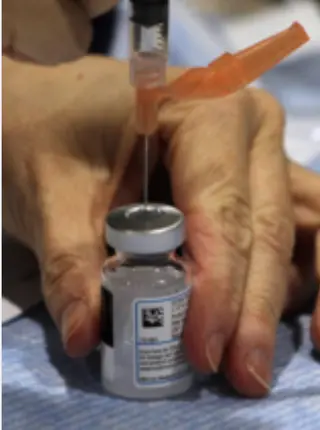
E. John Wherry, PhD, chair of Systems Pharmacology and Translational Therapeutics and director of the Penn Institute for Immunology, discussed COVID-19 vaccine booster shots and booster prospects for people who didn’t get the Pfizer shot. Wherry advised those who are healthy and not otherwise high risk who got Moderna and Johnson & Johnson to sit tight until the safety data comes out, as both vaccines demonstrate a lot of stability in immunity and protection against hospitalization or death. Wherry also stressed the importance of getting vaccines to those who are unvaccinated.
Pfizer Vaccine Approval and COVID-19 At-Home Tests
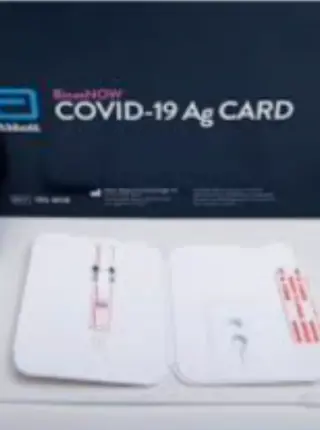
E. John Wherry, PhD, chair of Systems Pharmacology and Translational Therapeutics and director of the Penn Institute for Immunology, joined Good Day Philadelphia to discuss the latest developments with the Pfizer vaccine. In addition, in light of a recall for the Ellume at-home rapid test, Wherry discussed the difference between at-home rapid tests and PCR tests, false positives, and the benefit of at-home antigen rapid tests.
Our COVID-19 Vocabulary Needs a Reset

By now a lot of pandemic verbiage has been misconstrued. All of a sudden, terms for a professional community are being used for everyone — and the transition hasn’t always been smooth, as misunderstandings are very hard to rein in once they’ve started to spread. Instead of using the term “natural immunity,” E. John Wherry, PhD, chair of Systems Pharmacology and Translational Therapeutics and director of the Penn Institute for Immunology, and others prefer using terms such as “infection-acquired” and “vaccine-acquired immunity.” They’ve also been using the phrase “hybrid immunity” to refer to the heightened protection that’s afforded when people with a prior SARS-CoV-2 infection get vaccinated.
‘Mix and Match’? Study Supports Following J&J Vaccine With Pfizer, Moderna
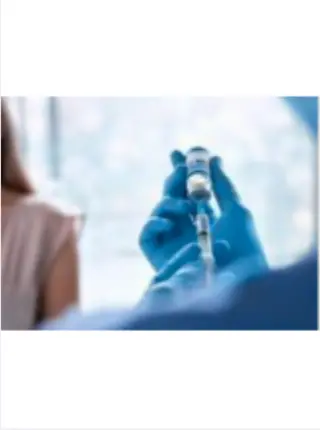
Scott Hensley, PhD, a professor of Microbiology, and E. John Wherry, PhD, chair of Systems Pharmacology and Translational Therapeutics and director of the Penn Institute for Immunology, were quoted discussing recent NIH research on mixing different coronavirus vaccines for booster shots. Wherry noted that the most important finding was that it is safe to mix different vaccines and boosters, and further studies will be able to provide more details about the performances of different combinations.
COVID-19 Super-Immunity: One of the Pandemic’s Great Puzzles
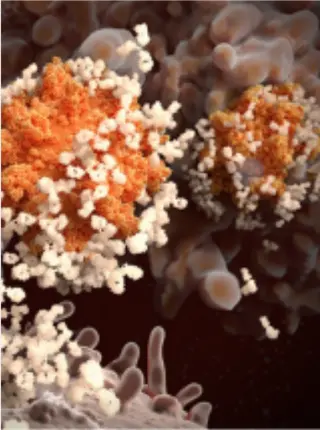
Nature highlighted recent research led by E. John Wherry, PhD, chair of Systems Pharmacology and Translational Therapeutics and director of the Penn Institute for Immunology, and PSOM student Rishi Goel, a member of the Wherry Lab, on immune responses from the mRNA vaccines in COVID-19 naïve individuals and in those who had recovered from the virus, six months after vaccination. Antibody levels fell after vaccination, but these cells should start cranking out antibodies if they encounter SARS-CoV-2 again. “The reality is you have a pool of high-quality memory B cells that are there to protect you if you ever see this antigen again,” Goel said.
New Studies Find Evidence of ‘Superhuman’ Immunity to COVID-19 in Some People

Recent research from E. John Wherry, PhD, chair of Systems Pharmacology and Translational Therapeutics and director of the Penn Institute for Immunology, was highlighted in an NPR story about powerful immune responses against SARS-CoV-2. The research, published online in late August, showed that, over time, people who have had only two doses of the vaccine (and no prior infection) start to make more flexible antibodies — antibodies that can better recognize many of the variants of concern.
To Boost or Not to Boost?
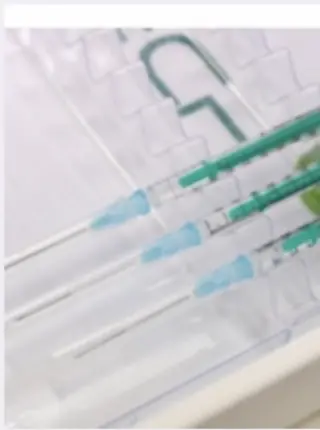
E. John Wherry, PhD, chair of Systems Pharmacology and Translational Therapeutics and director of the Penn Institute for Immunology, and Aaron Richterman, MD, MPH, a fellow in the division of Infectious Diseases, were quoted in a piece explaining what COVID-19 booster shot studies say so far and why some are skeptical of the immediate need for boosters.
Even When Undergoing Treatment, People With MS Gain From COVID-19 Vaccines
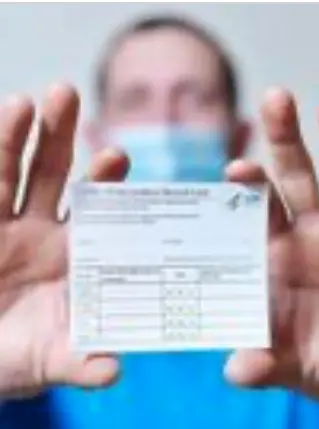
Multiple sclerosis (MS) patients undergoing a treatment that depletes a type of immune cell that fuels MS attacks still have a strong response to mRNA COVID-19 vaccines, finds a new study by Amit Bar-Or, MD, FRCPC, director of the Center for Neuroinflammation and Experimental Therapeutics and chief of the Division of MS and Related Disorders, and E. John Wherry, PhD, chair of Systems Pharmacology and Translational Therapeutics and director of the Penn Institute for Immunology.
COVID-19 After Being Fully Vaccinated
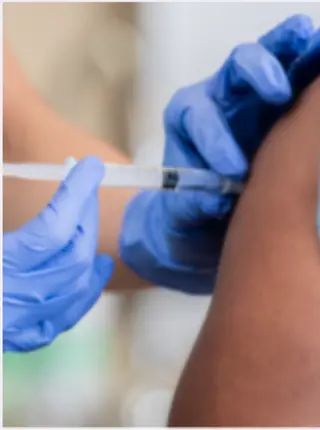
E. John Wherry, PhD, chair of Systems Pharmacology and Translational Therapeutics and director of the Penn Institute for Immunology, spoke with Buzzfeed about breakthrough COVID-19 cases, how the vaccines work to help protect one against the virus, and why it is important to get vaccinated — even if one is young and healthy. “These vaccines are absolutely still preventing severe disease, hospitalization, and death. Many of those mild cases we are seeing in vaccinated individuals would be much more severe if the individual had not been vaccinated,” Wherry explained.
Pfizer Announces That COVID-19 Vaccine Works in Children Ages 5-11
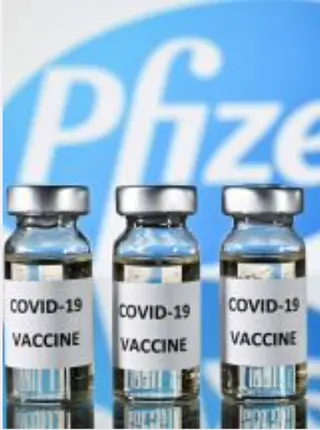
E. John Wherry, PhD, chair of Systems Pharmacology and Translational Therapeutics and director of the Penn Institute for Immunology, joined “Good Day Philadelphia” to talk about the latest in coronavirus and COVID-19 vaccine news. Wherry discussed the recent announcement from Pfizer that its coronavirus vaccine has been shown to be safe and highly effective in young children aged 5 to 11 years.
Robust T-Cell Response to mRNA COVID-19 Vaccines
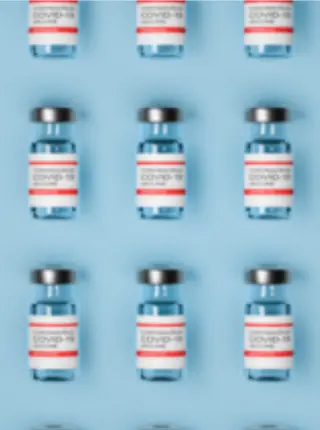
mRNA COVID-19 vaccines provoke a swift and strong response by the immune system’s T cells — the heavy armor of the immune system — according to a study led by E. John Wherry, PhD, chair of Systems Pharmacology and Translational Therapeutics and director of the Institute for Immunology. The results revealed how the T-cell response to these vaccines unfolds and underline the importance of a second dose for people with no history of COVID-19. The findings showed, however, that in people with a history of COVID-19, the T-cell response was already robust after the first vaccine dose, with no significant increase after the second dose, which may have implications for potential future booster shots.
How Long Does COVID-19 Immunity Last Anyway?
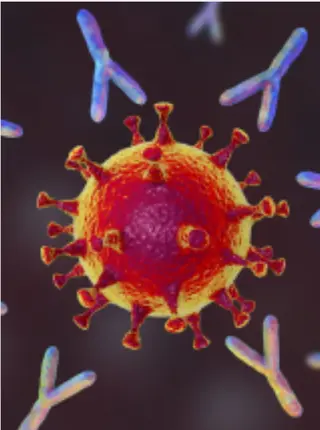
COVID-19 vaccines are the best tool to keep people out of the hospital and alive. E. John Wherry, PhD, chair of Systems Pharmacology and Translational Therapeutics and director of the Penn Institute for Immunology, spoke with NPR’s “Short Wave” about the impressive immune response from vaccines. His lab’s research shows that months after the vaccine, a person’s antibodies begin to become more powerful, more flexible. “So the same antibody can actually detect and, presumably, neutralize the Alpha variant, the Beta variant, and very likely the Delta variant as well,” Wherry said.
Study details robust T-cell response to mRNA COVID-19 vaccines, a more durable source of protection
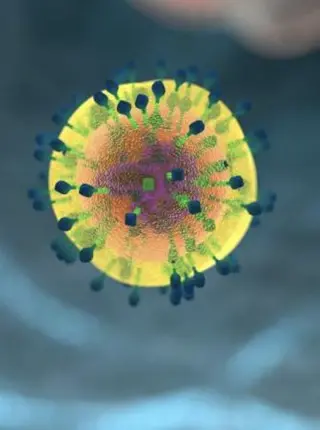
Messenger-RNA (mRNA) vaccines against the coronavirus that causes COVID-19 provoke a swift and strong response by the immune system's T cells—the heavy armor of the immune system—according to a study from researchers in the Perelman School of Medicine at the University of Pennsylvania.
‘Time to Scale Back': How Disease Experts Are Living Amid Rise in COVID Cases
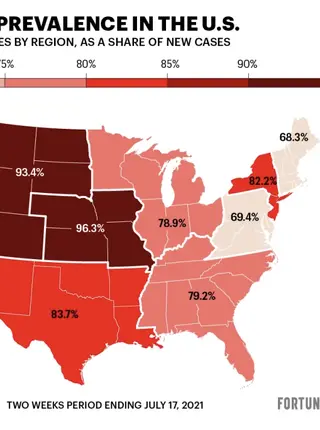
The Delta variant has caused a rise in cases across the Philadelphia region. Three local infectious disease experts talked about their approaches to dining out, sending kids to school this fall and gathering in crowds.
Covid-19 Delta variant: The latest science and guidance
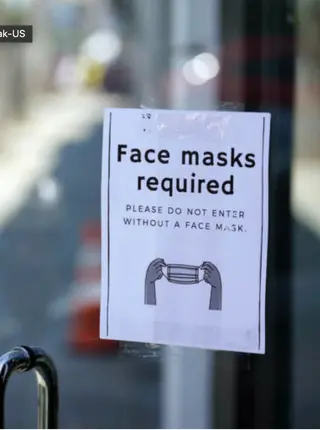
This hour, the latest science and guidance on Covid, the Delta variant, vaccines, and masking with University of Pennsylvania immunologist JOHN WHERRY and New York University School of Medicine infectious disease specialist CELINE GOUNDER.

